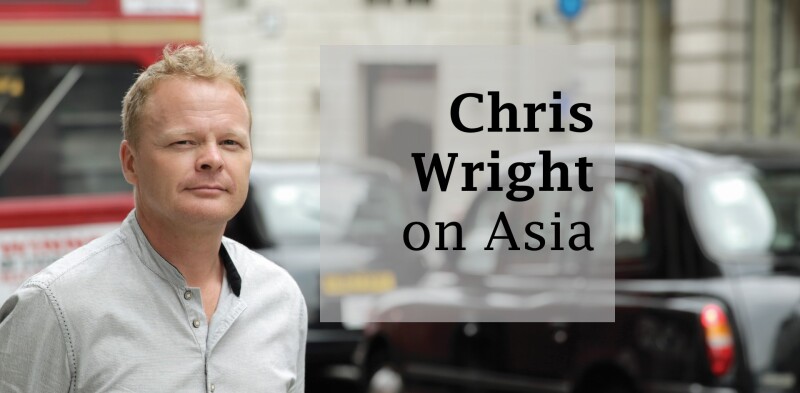
Temasek disclosed its worst result in seven years in July – negative 5.07% in total shareholder returns – dropping the net portfolio value to S$382 billion ($288 billion) as of March 31, down from S$403 billion in 2022.
A lot went against the Singapore wealth vehicle: declines in both public and private equity capital markets (Temasek is 100% equity, including pre-listings; S$202 billion of its portfolio is unlisted) and a hit to both China and the tech sector (Temasek is overweight in both relative to most peers).
But what is Temasek doing to arrest that for the long term? As ever, the account of new investments and divestments in the group’s annual review is intriguing.
Temasek is always an active investor, working the portfolio to shift with the prevailing winds and recycle capital, but this was a particularly lively year
In the year to March 31, Temasek made a net investment of S$4 billion, but that dramatically understates the level of activity behind the scenes: S$31 billion of investment and S$27 billion of divestments.
Temasek is always an active investor, working the portfolio to shift with the prevailing winds and recycle capital, but this was a particularly lively year.
Globally, Temasek poured money into some strikingly big names in financial services, Blackstone and TPG, to position for the theme of democratized access to alternative investment products.
Yet whatever it put in was more than balanced out by sales in other parts of the portfolio: Temasek’s exposure to financial services declined from 23% to 21%, although lower market valuations may have contributed to this. (Temasek did not disclose its divestments in detail; its biggest financial services positions are in DBS and Standard Chartered, while smaller holdings include China Construction Bank, ICBC, HDFC Bank and ICICI).
Money in
India, the darling of world economies right now along with Indonesia, was active. Temasek invested in Zomato, the online food delivery platform; Country Delight, a subscription-based food essentials platform; HealthKart, a nutrition and wellness supplements manufacturer and retailer; and OneCard, a mobile-first credit card issuance platform.
It increased stakes in life insurers HDFC Life and ICICI Prudential, and in Shiprocket, a direct commerce platform. It bought a 41% stake in Manipal Health Enterprises, a hospital chain.

Temasek has always taken the long view on China, and the geopolitical tension around the country hasn’t stopped the Singaporean fund investing. It invested in Koutech, a microsurgery robotics company; Shanghai Friendess Electronic Technology, a laser cutting control system provider; and the restaurant operator Yum China.
Other important investments include Israel-based retail automation platform Trigo; North American payments and software platform Stripe; and in Europe, EuroGroup Laminations and Element Materials Technology.
On home turf, Temasek’s role as a catalyst to create the sort of companies it wants to see was in evidence. It drove the merger of two portfolio companies – Sembcorp Marine and Keppel Offshore & Marine – into a new enterprise, Seatrium, positioned as a global player in offshore renewables and new energy.
It also bankrolled much of a S$800 million rights issue from regional air cargo platform SATS to fund its acquisition of Worldwide Flight Services. And, as discussed by Euromoney, its portfolio companies Olam Group sold a substantial minority stake in Olam Agri to Saudi Arabia.
The engines
Just as important as the purchases are the partnerships. What Temasek now calls its Partnership Engine now accounts for 10% of the portfolio, comprised of assets with about S$79 billion of assets under management: they include businesses such as SeaTown Holdings, Pavilion Capital and Fullerton Fund Management.
In the review period, Temasek and DBS bought a growth-stage debt-financing platform called EvolutionX Debt Capital.
And despite the embarrassment of failed crypto platform FTX, Temasek continues to invest in deep tech and innovative technologies, including Pasqal, a France-based quantum computing business, and Ionblox, which develops next-generation lithium-ion batteries. The Development Engine, as Temasek now badges this, accounts for 4% of the portfolio.
All Temasek’s ideas fit within the context of four key themes it believes will shape the future: digitalization, sustainable living, the future of consumption, and longer lifespans. But in the short term, it is dealing with the same challenges as everybody else: geopolitical tension, the effects of war, tight monetary policy, inflation, slowing global growth and recession risks in key developed markets. In remarks that caused a chill locally, Temasek guided for a possible Singapore recession.
Rohit Sipahimalani, Temasek’s chief investment officer, says he expects Temasek to invest “at a moderated pace” this financial year, but that it has enough liquidity to “step up our investments in a market correction.”
It is a challenging time for an equity-only investor.
